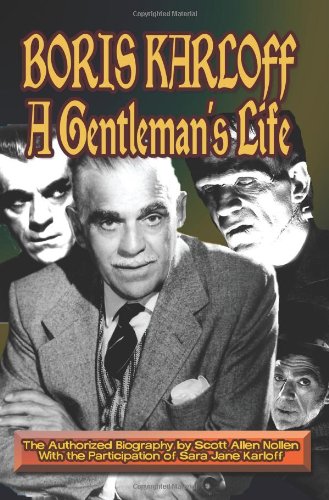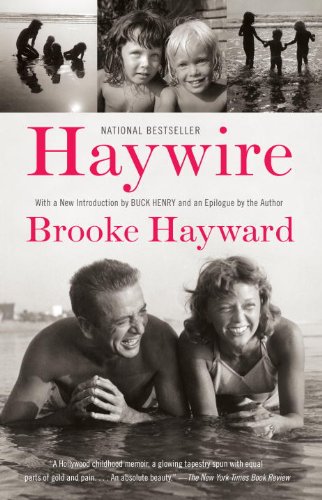All articles and pages may contain affiliate links. You can read our disclosure policy here. Edward G Robinson
Filmography
1914
The Acid Test
The Man Behind the Door
1913
A Parisian Romance
Nearly a King
The Price of Happiness
The Habit of Happiness
The Crucial Test
The Devil at His Elbow
The Reward of Patience
Manhattan Madness
The Scarlet Runner
The Kiss
The Blue Envelope Mystery
1917
The Valentine Girl
The Moth
1921
Through the Back Door
The Three Musketeers
The Sheik
1922
Head Over Heels
The Fast Mail
Clarence
Singed Wings
1923
The World’s Applause
Bella Donna
A Woman of Paris
1924
The Marriage Circle
Forbidden Paradise
Shadows of Paris
Open All Night
The Fast Set
1925
The King on Main Street
Are Parents People?
1926
A Social Celebrity
The Ace of Cads
The Sorrows of Satan
1927
Evening Clothes
Serenade
Service for Ladies
A Gentleman of Paris
1928
His Private Life
A Night of Mystery
Marquis Preferred
1930
Mysterious Mr. Parkes
Morocco
1931
The Easiest Way
Men Call It Love
Friends and Lovers
1932
Diamond Cut Diamond
Prestige
Forbidden
Two White Arms
1933
Convention City
Wife Beware
1934
Easy to Love
The Trumpet Blows
Little Miss Marker
Journal of a Crime
The Mighty Barnum
1935
Broadway Gondolier
1936
The Milky Way
1937
Café Metropole
One Hundred Men and a Girl
1938
The Goldwyn Follies
Letter of Introduction
Thanks for Everything
1939
King of the Turf
The Housekeeper’s Daughter
That’s Right
1940
Turnabout
A Bill of Divorcement
1941
Road Show
Father Takes a Wife
1942
Roxie Hart
Syncopation
You Were Never Lovelier
1943
Hi Diddle Diddle
Sweet Rosie O’Grady
1944
Step Lively
1945
Man Alive
1946
Heartbeat
The Bachelor’s Daughters
1947
I’ll Be Yours
Mr. District Attorney
The Hucksters
1948
1949
My Dream Is Yours
Dancing in the Dark
1950
To Please a Lady
1951
The Tall Target
Across the Wide Missouri
1952
The Sniper
1953
Man on a Tightrope
1955
Timberjack
1956
The Ambassador’s Daughter
1956
Bundle of Joy
1957
The Fuzzy Pink Nightgown
1958
I Married a Woman
1960
Pollyanna
Awards
Adolphe Menjou was nominated for one Best Actor in a Leading Role Academy Award for The Front Page (1931)
It was my mustache that landed jobs for me. In those silent-film days it was the mark of a villain. When I realized they had me pegged as a foreign nobleman type I began to live the part, too. I bought a pair of white spats, an ascot tie and a walking stick. ~ Adolphe Menjou
Adolphe Menjou: Learn more about him, review his filmography and more
Adolphe Jean Menjou was born in Pittsburgh, Pennsylvania on February 18, 1890, to a French father, Albert Menjou (1858-1917), and an Irish mother, Nora (née Joyce) (1869-1953). He had a brother named Henry Arthur Menjou (1891-1956) who was a year younger. He was raised Roman Catholic, attended the Culver Military Academy, and graduated from Cornell University with a degree in engineering. Attracted to the vaudeville stage, he made his movie debut in 1916 in The Blue Envelope Mystery. He was primed as a matinée idol back in the silent-film days. With hooded, slightly owlish eyes, a prominent nose and prematurely receding hairline, he was hardly competition for Rudolph Valentino, but he did possess the requisite demeanor to confidently pull off a roguish and magnetic man-about-town.
During World War I, he served as a captain in the United States Army ambulance service. He trained in Pennsylvania before going overseas.
Nothing of major significance happened for the fledgling actor until 1921, an absolute banner year for him. After six years of struggle he finally broke into the top ranks with substantial roles in The Faith Healer (1921) and Through the Back Door (1921), the latter starring Mary Pickford. He formed some very strong connections as a result and earned a Paramount contract in the process. Cast by Mary’s then-husband Douglas Fairbanks as Louis XIII in the rousing silent The Three Musketeers (1921), he finished off the year portraying the influential writer/friend Raoul de Saint Hubert in Rudolph Valentino’s classic The Sheik (1921).
Firmly entrenched in the Hollywood lifestyle, it took little time for Menjou to establish his slick prototype as the urbane ladies’ man and wealthy roué. Paramount, noticing how Menjou stole scenes from Charles Chaplin favorite Edna Purviance in Chaplin’s A Woman of Paris: A Drama of Fate (1923), started capitalizing on Menjou’s playboy image by casting him as various callous and creaseless matinée leads in such films as Broadway After Dark (1924), Sinners in Silk (1924), The Ace of Cads (1926), A Social Celebrity (1926) and A Gentleman of Paris (1927).
The stock market crash in 1929 led to the termination of Adolphe’s Paramount contract, and his status as leading man ended with it. MGM took him on at half his Paramount salary and his fluency in such languages as French and Spanish kept him employed at the beginning. Rivaling Gary Cooper for the attentions of Marlene Dietrich in Morocco (1930) started the ball rolling for Menjou as a dressy second lead. Rarely placed in leads following this period, he managed his one and only Oscar nomination for “Best Actor” with his performance as editor Walter Burns in The Front Page (1931). Not initially cast in the role, he replaced Louis Wolheim, who died ten days into rehearsal. Quality parts in quality pictures became the norm for Adolphe during the 1930s, with outstanding roles given him in The Great Lover (1931), A Farewell to Arms (1932), Forbidden (1932), Little Miss Marker (1934), Morning Glory (1933), A Star Is Born (1937), Stage Door (1937) and Golden Boy (1939).
The 1940s were not as golden, however. In addition to entertaining the troops overseas and making assorted broadcasts in a host of different languages, he did manage to get the slick and slimy Billy Flynn lawyer role opposite Ginger Rogers‘ felon in the “Chicago” adaptation Roxie Hart (1942), and continued to earn occasional distinction in such post-WWII pictures as The Hucksters (1947) and State of the Union (1948). His last lead was in the crackerjack thriller The Sniper (1952), in which he played an urbane San Francisco homicide detective tracking down a killer who preys on women in San Francisco, and he appeared without his mustache for the first time in nearly two decades. Also active on radio and TV, his last notable film was the anti-war picture Paths of Glory (1957) playing the villainous Gen. Broulard.
Adolphe’s extreme hardcore right-wing Republican politics hurt his later reputation, as he was made a scapegoat for his cooperation as a “friendly witness” at the House Un-American Activities Commission hearing during the Joseph McCarthy Red Scare era. Following his last picture, Disney’s Pollyanna (1960), in which he played an uncharacteristically rumpled curmudgeon who is charmed by Hayley Mills, he retired from acting. He died with hepatitis on October 29, 1963.
Menjou was married to Verree Teasdale from 1934 until his death on October 29, 1963, and had one adopted son. He was previously married to Kathryn Carver in 1928. They divorced in 1934. A prior marriage to Kathryn Conn Tinsley also ended in divorce.
After a nine-month battle with hepatitis, Menjou died on October 29, 1963, in Beverly Hills, California. He is interred next to Verree at Hollywood Forever Cemetery.












Follow Us!